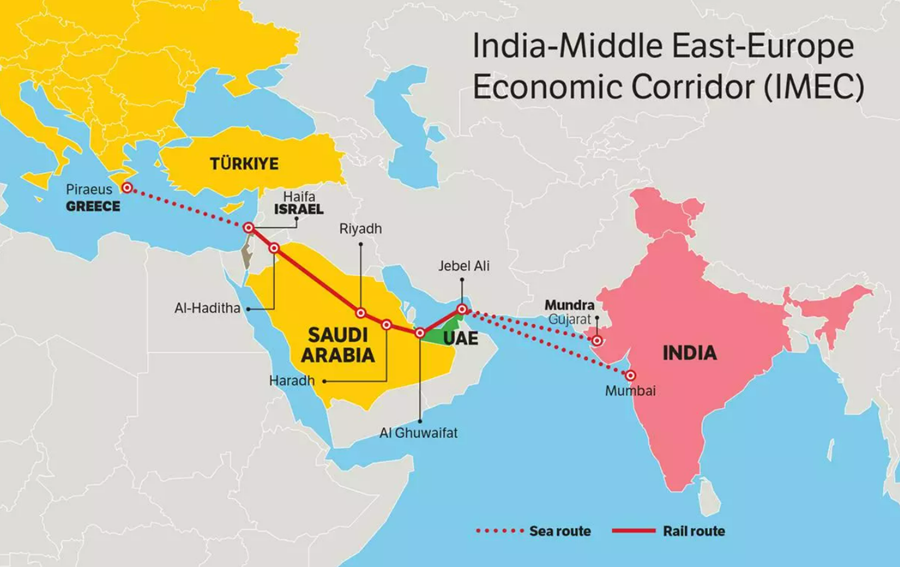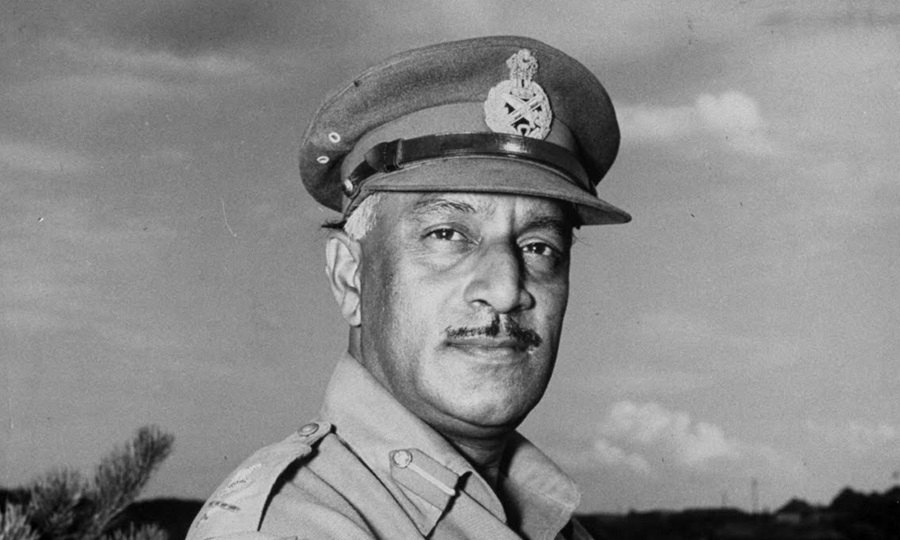

Yiannis Ioannou
Government officials consider the upcoming official visit of Indian Prime Minister Narendra Modi to Cyprus this Sunday to be of particular importance for both geopolitical reasons and bilateral relations between the two countries. Modi’s visit marks only the third official visit by a senior Indian leader to the Republic of Cyprus, following those of Indira Gandhi in 1983 and Atal Bihari Vajpayee in 2002.
Geopolitical implications
One key dimension of Modi’s visit is the evolving geopolitical relationship within the Greece-Cyprus-India triangle, particularly since 2023, through the India-Middle East-Europe Economic Corridor (IMEC). This ambitious project envisions an economic and energy corridor linking India to Europe via the Middle East, involving countries such as the UAE, Saudi Arabia, Israel, and EU member states. The corridor is being internationally supported, particularly by the United States, as an alternative to China’s Belt and Road Initiative (BRI). It was among the topics discussed during Modi’s recent meeting with U.S. President Donald Trump at the White House and received support from the European Union during Commission President Ursula von der Leyen’s visit to India this past February.
Greece has formally backed the initiative, and Cyprus views it positively as well. In fact, Athens and Nicosia jointly established a Greece-India Business Council (IGC) earlier this year.
The IMEC is considered a major geopolitical connectivity initiative linking Asia and Europe, traversing some of the world’s most critical and conflict-prone maritime and land corridors.
Turkey in the background
The longstanding regional rivalry between India and Turkey, particularly intensified by the Kashmir conflict and the legacy of Indo-Pakistani wars, is another angle Nicosia considers significant. Pakistan’s recent references to the “North of Cyprus” and its consistent backing of recognition efforts for the so-called “TRNC” have not gone unnoticed in Cyprus. Moreover, Turkey has criticized the IMEC initiative, with Turkish President Recep Tayyip Erdoğan promoting an alternative route via Iraq as a competing corridor between Asia and Europe.
Nonetheless, well-informed sources stress that Nicosia’s intention is not to send political signals of confrontation with Turkey via India but rather to align itself clearly with the IMEC project, sending a message of cooperation to both the Trump administration and the EU.
Cyprus also sees added value in its upcoming EU Council Presidency, which will coincide with ongoing EU-India dialogue, potentially giving it further diplomatic weight. General Kodandera Subayya Thimayya (1906–1965) was one of India’s most distinguished career military officers, known for his service during World War II and the Korean War. He was the second commander of the United Nations Peacekeeping Force in Cyprus (UNFICYP). Thimayya died in Cyprus in December 1965 and has since been widely honored, including the naming of streets in his memory and the issuance of a commemorative postage stamp by the Cyprus Post Office.
General Kodandera Subayya Thimayya (1906–1965) was one of India’s most distinguished career military officers, known for his service during World War II and the Korean War. He was the second commander of the United Nations Peacekeeping Force in Cyprus (UNFICYP). Thimayya died in Cyprus in December 1965 and has since been widely honored, including the naming of streets in his memory and the issuance of a commemorative postage stamp by the Cyprus Post Office.
Historical ties
Cyprus and India, both former British colonies and members of the Commonwealth, have maintained excellent bilateral relations since the establishment of the Republic of Cyprus in 1960. India was one of the first Asian countries to recognize Cyprus and aligned itself with Nicosia during the Cold War through the Non-Aligned Movement.
Archbishop Makarios visited India twice, in 1962 and again in June 1974. Following the Turkish invasion, India served as a contact state within the Non-Aligned Movement on the Cyprus issue. India’s support is further evidenced by the contributions of Indian officers to the United Nations Peacekeeping Force in Cyprus (UNFICYP), with three of its commanders being senior Indian military figures:
- Lieutenant General Prem Singh Gyani (March–July 1964)
- General Kodandera Subayya Thimayya (July 1964–December 1965, died while serving in Cyprus; a street was named in his honor, and a commemorative stamp was issued by Cyprus Post)
- Lieutenant General Dewan Prem Chand (December 1969–December 1976)
India has consistently worked in favor of Cyprus in key UN Security Council negotiations, supporting critical resolutions during sensitive diplomatic periods.
*This article was translated from its Greek original.































